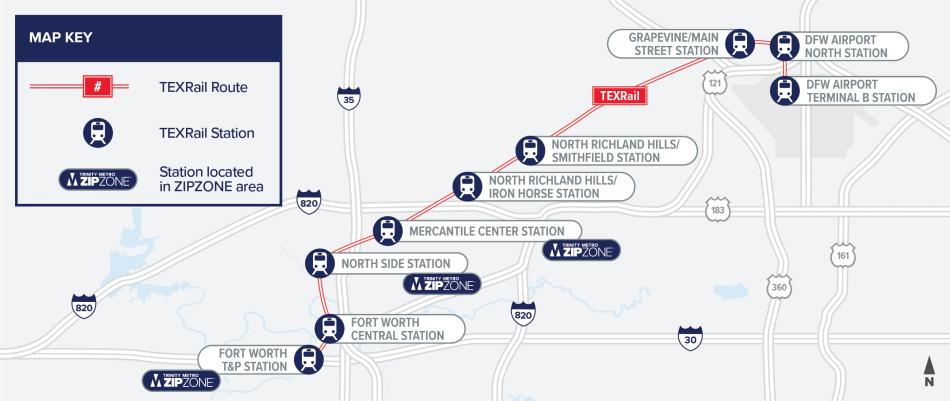In May 2024, Fort Worth Mayor Mattie Parker announced the formation of a committee to explore urban rail development within the DFW Metroplex. The committee, whose full name is the "Mayor's Urban Rail Committee Supporting Economic Development & Tourism", is being made in partnership with the Tarrant County transit agency Trinity Metro. The City and Trinity Metro have agreed to split consulting fees incurred by the committee, indicative of the mutually beneficial arrangement the two public bodies see resulting from exploring public transit.
The committee, which will begin meeting this summer, is made up of business, tourism, and transportation leaders within Fort Worth. Former Fort Worth Economic Development Director Jay Chapa of J Chapa Strategic Solutions will chair the committee. Three main tasks have been highlighted for completion by the end of 2024:
- Determine if there is a likelihood to develop a fixed rail system designed to move people along the entertainment districts within Fort Worth based on potential ridership, costs and funding.
- Explore financial support and mechanisms of construction and operations.
- Determine potential legislative needs and priorities as it relates to economic development, tourism rail projects.
Many Metroplex residents will likely be surprised by the current extent of Trinity Metro's rail lines, which offers service from the heart of Fort Worth to DFW Airport. Rapid growth within The Metroplex will likely necessitate further development of public transit -- you can only "add one more lane" so many times. Fort Worth Mayor Parker echoed that sentiment in her statement:
We know that Fort Worth remains one of the fastest-growing cities in America, and current trends show that in 2100 the Fort Worth-Dallas Metro region will be the largest metro area in the country. With that growth comes immense challenges and opportunities. I believe right now that we are well-poised for the opportunity to explore urban rail opportunities, particularly in supporting our growing economic development and tourism industries.
Looking beyond the mayor's subtle mention of the "Fort Worth-Dallas Metro", emphasis upon accommodating tourists is important to note. Fort Worth's extensive investment into tourist destinations, such as overhauling the convention center, will likely benefit greatly from improved infrastructure. That's not to mention the benefits of having fewer cars on the road, especially as Fort Worth's red-hot industrial market puts more trucks on the road. Rich Andreski, CEO of Trinity Metro, similarly noted the importance of public transit in driving economic growth, specifically noting tourism:
Trinity Metro is always striving to think ahead for what Fort Worth’s transit needs will be into the future. We are glad to continue our collaborative work on this effort with City of Fort Worth, this time with a focus on exploring solutions that support the dynamic economic development and tourism needs of a rapidly-growing Tarrant County.
While it is certainly difficult to imagine the DFW area as an NYC-esque hub of commuter rail, targeting specific needs, such as those of tourists, will hopefully lead to manageable scopes and achievable goals.







